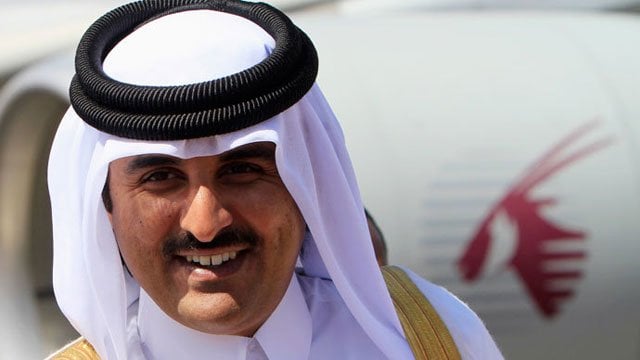
The fourth meeting of the Quadrilateral Coordination Group comprising Afghanistan, Pakistan, China and the United States began today in Kabul. Direct talks between Kabul and Taliban broke down after news of Mulla Omar’s death was released in July last year. Ever since, shuttle diplomacy between Doha, Kabul and Islamabad has intensified to resume the stalled process.
Gen Raheel discusses role of Taliban’s Qatar office in talks
When the idea of holding talks with militant opposition in Afghanistan was gaining ground in 2012, Qatar offered to host Taliban’s political interface, an offer which neither Pakistan, Karazi-led Kabul or Washington objected to. Thus, regardless of geographical distance, absence of shared history and lack of other obvious connections, Qatar achieved a special role in the effort to bring stability to Afghanistan.
Afghanistan is no exception though as Doha has proactively used its offices for mediation in Sudan, Somalia, Lebanon and Yemen (prior to the ongoing war between Iran-backed Houthis and Yemen’s government). Entering the mediation plain in 2006, Qatar is gradually replacing Norway as the world’s mediator.
Unlike Pakistan, Qatar does not have a large number of troops, which can be spared to serve as UN Peacekeepers. The country, instead, promotes dialogue between bitter rivals to achieve peace. The efforts have paid off to a good degree but not absolutely. However, the coup in Yemen by the Houthis exposed the limits of Qatar’s soft power. When Saudi Arabia belatedly decided to intervene militarily in March, Doha could not stay neutral like Muscat. Besides a dozen fighter jets, some 1,000 Qatari troops are fighting the Iran-backed militants in Yemen. Qatar was among the first few countries to welcome the Iran nuclear deal and enjoys a good working relationship with the country when it comes to exploiting shared gas reserves in the Gulf. Recently, Iranian news sources boasted of a maritime security pact between Qatar and Iran.
The strategic choice of adopting mediation as part of their foreign policy derives from a concept of soft power defined by Dr Joseph Nye as “the ability of a country to persuade others to do what it wants without force or coercion”. Doha has been trying to increasingly realise the political scientist’s conception by not becoming hostage to its smaller geographical size or isolated location.
With well over £50 billion in its sovereign funds and surpassing Switzerland in overall financial might, Qatar has generally adopted policies independent from other Gulf countries. Joining the Yemen conflict has been an exception though. Over the years, Qatar has tried to gain more diplomatic space at the UN and other fora too. For instance, Doha is the chair for UN Alliance of Civilizations. Over the past decade, Doha has attempted mediation as a solo actor as well as teaming up with other stakeholders. It’s true that Qatar does not have its own model of third-party mediation but relies on multiple factors or elements identified by Joseph Nye for a soft power.
Within the Middle East and North Africa, Qatar is increasingly adopting a cautious foreign policy, in the wake of allegations of intervention instead of mediation.
Army chief, Qatari leadership discuss Afghan peace process
For the time being, the Afghan militias may be adopting a tough posture by placing preconditions, but the posturing won’t last for long and the real issues will have to be addressed. Like Darfur, Somalia or Yemen, the talks on Afghanistan may not bear fruit in the short run; Qatar will continue to benefit from the ‘news’ of mediation. However, Qatar is not the sole mediator in case of Afghanistan. China, Pakistan and the US too share responsibility of the process’ outcomes. At the bilateral level, Afghanistan is becoming a factor in bringing Pakistan and Qatar closer to each other besides other shared interests.
Naveed Ahmad is a Pakistani investigative journalist and academic with extensive reporting experience in the Middle East and North Africa. He is based in Doha and Istanbul. He tweets @naveed360







1732946669-0/Untitled-design-(10)1732946669-0-270x192.webp)









COMMENTS (3)
Comments are moderated and generally will be posted if they are on-topic and not abusive.
For more information, please see our Comments FAQ